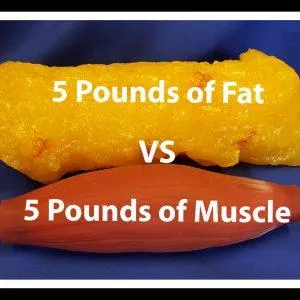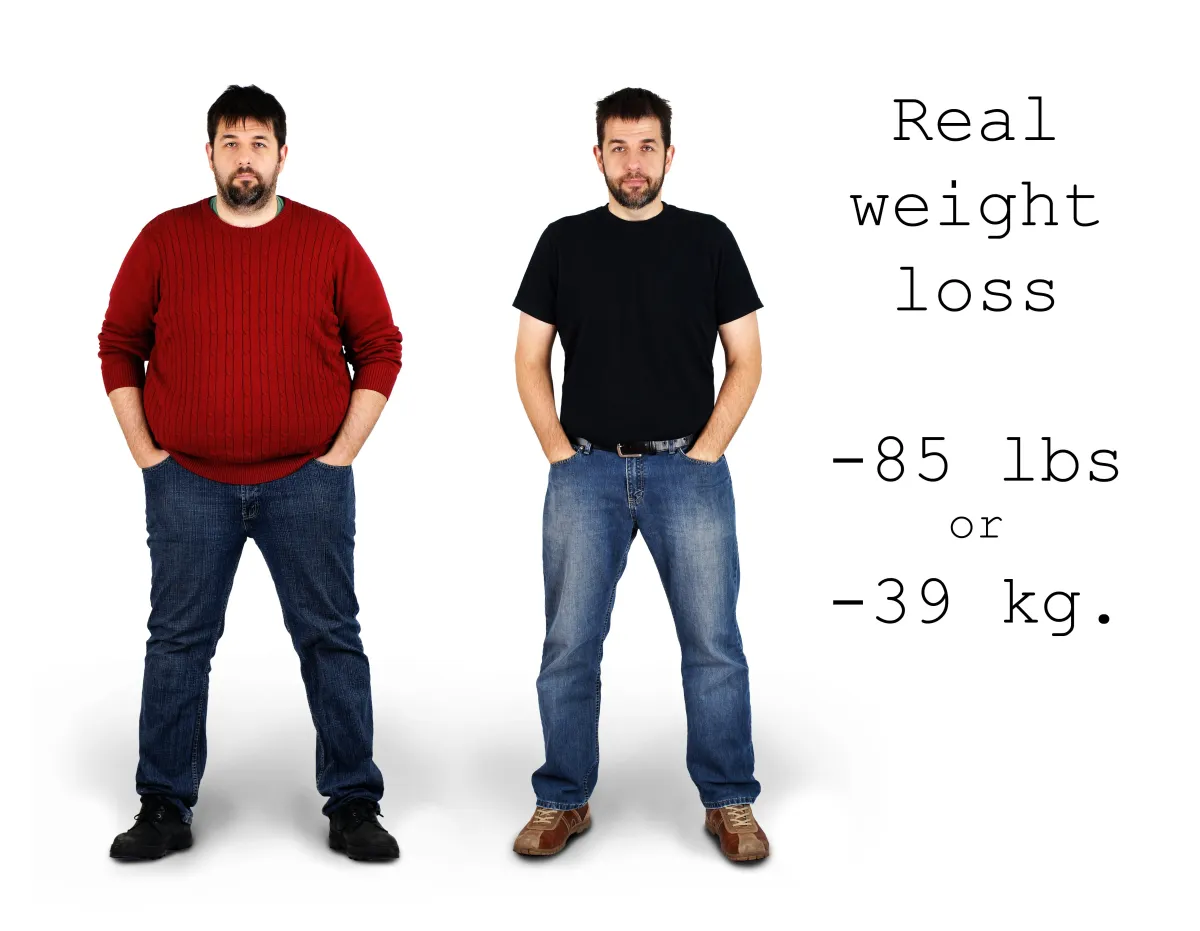WELCOME TO Transformative 360 weight loss clinic
WHY TO CHOOSE US???

SCIENCE BASED APPROACH:
Because muscle has a higher metabolic rate than fat while you're at rest, muscle burns more calories than fat. Even while one pound is still just one pound, its makeup is crucial. In comparison to fat, muscle is more compact. Fat is less dense than muscle. Approximately one-half as much space is occupied by muscle as by fat. The person with a higher body fat percentage will wear a larger size even if they are the same height and weight as the other person. We use Evidenced based protocol first converting your body from fat storing to fat burning mode and we will design program to increase your muscle mass which will eventually increase your metabolism. This will turn your body in fat burning mode. The whole concept is individual specific and customized.
ALL KINDS
OF Weight loss services
One convenient location. Transformative 360 is one of the finest Weight Loss and Med Spa Facility in Hudson County with Conveniently Located at
Bayonne and Jersey City.
WHAT MAKES US DIFFERENT

Modern Equipment
We use the latest medical equipment to deliver top-class cosmetic surgery services.
Qualified Doctors and Staff
We use the latest medical equipment to deliver top-class cosmetic surgery services.
Effective Results
We use the latest medical equipment to deliver top-class cosmetic surgery services.
OUR TEAM


Vineeta Thakkar
Certified Weight Management Specialist

Sunny Thakkar PT, MS
PT & Exercise Physiologist

Dr. Leon Scrimmager
Internal Medicine
OUR FAT TO FIT SERVICES

7 Day Detox

HCG WEIGHT LOSS

SEMAGLUTIDE WEIGHT LOSS

LIPO LIGHT PRO

CYNOSURE

TempSure
Sign Up for Free Consult to se if Transformative360 is right for your Weight Loss Journey

Proven strategies that Actually Work: Transform Your Body Today!
Proven Weight Loss Strategies That Actually Work: Transform Your Body
"Transforming your body begins with a decision to not give up, no matter how slow the progress—because progress is still progress."

Are you ready to take charge of your health and transform your body? Weight loss can feel like an uphill battle, filled with countless myths and fleeting trends that don’t deliver results. But what if there were proven weight loss strategies that actually work? In this article, we’ve compiled ten effective methods that can help you shed those extra pounds and embrace a healthier lifestyle. From simple dietary tweaks to sustainable exercise routines, these strategies are designed to fit seamlessly into your everyday life. It’s time to stop searching for quick fixes and start implementing solutions that yield real, lasting change. Discover how you can rejuvenate your body and mind, gaining not just confidence but also vitality. Your journey to a healthier you begins here—let's dive into these proven weight loss strategies that can transform your life today!
Understanding the Science of Weight Loss
Understanding the science behind weight loss is crucial to achieving your goals effectively. Weight loss fundamentally revolves around the balance between calories consumed and calories burned. When you consume more calories than your body needs for maintenance and physical activities, the excess is stored as fat. Conversely, creating a calorie deficit by eating fewer calories or increasing physical activity forces the body to utilize stored fat for energy, leading to weight loss.
However, not all calories are created equal. The source of the calories—whether from carbohydrates, fats, or proteins—can impact how the body processes and uses them. For instance, protein has a higher thermic effect than fats and carbohydrates, meaning it requires more energy to digest and metabolize. This not only aids in burning more calories but also helps in preserving lean muscle mass during weight loss, which is essential for a healthy metabolism.
Moreover, understanding your body’s basal metabolic rate (BMR)—the number of calories your body needs at rest to maintain vital functions—can help in creating an effective weight loss plan. Factors such as age, sex, weight, and muscle mass influence your BMR. By combining this knowledge with a well-rounded diet and exercise regimen, you can tailor your weight loss efforts to your unique physiological needs, ensuring more efficient and sustainable results.

Nutrition: Building a Balanced Diet for Weight Loss
Nutrition plays a pivotal role in weight loss, and building a balanced diet is essential for achieving and maintaining a healthy weight. A diet rich in whole, unprocessed foods provides the necessary nutrients your body needs to function optimally while minimizing empty calories that contribute to weight gain. Focus on incorporating a variety of fruits, vegetables, lean proteins, whole grains, and healthy fats into your meals.
Protein is particularly important for weight loss as it helps build and repair muscle tissue, promotes satiety, and boosts metabolism. Include sources like chicken, fish, beans, and legumes in your diet. Additionally, fiber-rich foods such as vegetables, fruits, and whole grains can help you feel fuller for longer, reducing the likelihood of overeating. Healthy fats from sources like avocados, nuts, seeds, and olive oil are also vital for overall health and can help curb cravings.

Portion control is another critical aspect of building a balanced diet. Even healthy foods can contribute to weight gain if consumed in large quantities. Pay attention to serving sizes and try to eat mindfully, savoring each bite rather than rushing through meals. Planning and preparing your meals in advance can also help you make healthier choices and avoid the temptation of convenient, high-calorie options.
Effective Exercise Routines to Boost Fat Burning
Regular physical activity is a key component of any successful weight loss plan. Effective exercise routines not only help burn calories but also improve overall fitness, boost metabolism, and enhance mental health. Incorporating a mix of cardiovascular exercises, strength training, and flexibility workouts can provide a well-rounded approach to weight loss.
Cardiovascular exercises, such as running, cycling, swimming, or brisk walking, are excellent for burning calories and improving heart health. Aim for at least 150 minutes of moderate-intensity or 75 minutes of high-intensity cardio each week. Interval training, which alternates between short bursts of intense activity and periods of rest or lower-intensity exercise, can be particularly effective for fat burning and improving fitness levels.

Strength training is equally important as it helps build lean muscle mass, which in turn boosts your resting metabolic rate, allowing you to burn more calories even at rest. Include exercises that target all major muscle groups, such as squats, deadlifts, push-ups, and rows. Aim for two to three strength training sessions per week. Don't forget to incorporate flexibility and balance exercises, such as yoga or Pilates, to improve overall mobility, reduce the risk of injury, and enhance recovery.
The Role of Hydration in Weight Management
Staying properly hydrated is often overlooked in weight management, but it plays a crucial role in overall health and weight loss. Water is essential for numerous bodily functions, including digestion, nutrient absorption, and temperature regulation. It also helps in the transportation of waste products out of the body, which is vital for maintaining a healthy metabolism.

Drinking water can aid in weight loss by promoting satiety and reducing overall calorie intake. Sometimes, thirst is mistaken for hunger, leading to unnecessary snacking. Drinking a glass of water before meals can help you feel fuller, which may result in eating smaller portions. Additionally, replacing sugary beverages, such as sodas and juices, with water can significantly reduce your daily calorie intake, contributing to weight loss.
Aim to drink at least eight 8-ounce glasses of water per day, although individual needs may vary based on factors such as age, sex, weight, activity level, and climate. Pay attention to your body’s signals and adjust your water intake accordingly. Incorporating water-rich foods, such as fruits and vegetables, into your diet can also help you stay hydrated while providing essential nutrients.
Mindful Eating: Techniques to Curb Overeating
Mindful eating is a powerful tool for curbing overeating and making healthier food choices. It involves paying full attention to the experience of eating, including the taste, texture, and aroma of food, as well as recognizing hunger and fullness cues. By practicing mindful eating, you can develop a healthier relationship with food and avoid mindless snacking or emotional eating.

Start by eliminating distractions during meals, such as watching TV or using electronic devices. Focus on the act of eating and savor each bite. Chew slowly and thoroughly, allowing your body time to register fullness signals. This can help prevent overeating and promote better digestion. Additionally, try to eat in a calm and relaxed environment, which can enhance the overall eating experience and reduce stress-related eating.
Another technique is to pay attention to portion sizes and serve yourself smaller portions to begin with. You can always go back for more if you're still hungry. Use smaller plates and bowls to make portions appear larger and more satisfying. Also, listen to your body's hunger and fullness signals, eating when you're truly hungry and stopping when you're comfortably full. Over time, these mindful eating practices can become habits that support long-term weight management.
The Power of Sleep and Stress Management
Adequate sleep and effective stress management are often underestimated components of a successful weight loss plan. Poor sleep and high stress levels can negatively impact your metabolism, appetite, and overall health. Ensuring you get enough quality sleep and managing stress effectively can significantly enhance your weight loss efforts.
Sleep deprivation can disrupt the balance of hunger-regulating hormones, such as ghrelin and leptin, leading to increased appetite and cravings for high-calorie foods. Aim for seven to nine hours of sleep per night to support optimal metabolic function and weight control. Establish a regular sleep schedule, create a relaxing bedtime routine, and create a sleep-friendly environment to improve sleep quality.

Stress can also contribute to weight gain by triggering emotional eating and increasing the production of cortisol, a hormone that promotes fat storage, especially around the abdominal area. Incorporating stress-reducing activities, such as meditation, deep breathing exercises, yoga, or spending time in nature, can help manage stress levels and support weight loss. Additionally, engaging in regular physical activity and maintaining a healthy social support network can also help reduce stress and improve overall well-being.
Tracking Progress: Tools and Techniques
Tracking your progress is essential for staying motivated and making informed adjustments to your weight loss plan. There are various tools and techniques available to help you monitor your progress and stay on track. Keeping a food diary, using a calorie-tracking app, or maintaining a fitness journal can provide valuable insights into your eating habits and physical activity levels.
Food diaries can help you become more aware of what and how much you're eating, identify patterns, and pinpoint areas for improvement. Calorie-tracking apps, such as MyFitnessPal or Lose It!, can simplify the process by providing nutritional information and tracking your daily intake. Additionally, fitness journals allow you to record your workouts, track your progress, and set new fitness goals.

Regularly measuring your weight, body measurements, and body fat percentage can also help you gauge your progress. However, it's important not to become overly fixated on the numbers. Weight can fluctuate due to various factors, such as water retention or muscle gain. Pay attention to how your clothes fit, your energy levels, and other non-scale victories to get a more comprehensive picture of your progress.
Common Weight Loss Myths Debunked
There are many weight loss myths and misconceptions that can lead to confusion and hinder your progress. It's important to separate fact from fiction to make informed decisions about your health and weight loss journey. One common myth is that you need to follow a specific diet to lose weight. In reality, there is no one-size-fits-all approach to weight loss. Different diets work for different people, and the key is to find a sustainable eating plan that suits your preferences and lifestyle.
Another myth is that you have to cut out entire food groups, such as carbohydrates or fats, to lose weight. Balanced diets that include a variety of nutrients are more effective and sustainable in the long term. It's also a misconception that exercise alone can lead to significant weight loss. While physical activity is important, diet plays a more substantial role in weight management. Combining a healthy diet with regular exercise is the most effective approach.

Additionally, many people believe that weight loss supplements or fad diets can provide quick and easy results. However, these methods are often ineffective and can be harmful. Sustainable weight loss requires a combination of healthy eating, regular physical activity, and lifestyle changes. By debunking these myths and focusing on evidence-based strategies, you can achieve lasting weight loss success.
Staying Motivated: Tips for Long-Term Success
Staying motivated is crucial for long-term weight loss success. It's natural to experience fluctuations in motivation, but developing strategies to maintain your drive can help you stay on track. Setting specific, achievable goals and celebrating your progress along the way can provide a sense of accomplishment and keep you motivated.
Surround yourself with a supportive network of friends, family, or a weight loss group. Sharing your goals and progress with others can provide accountability and encouragement. Additionally, consider working with a professional, such as a nutritionist or personal trainer, who can provide personalized guidance and support.

Finding activities you enjoy can also help you stay motivated. Whether it's dancing, hiking, swimming, or playing a sport, incorporating fun and enjoyable activities into your routine can make exercise feel less like a chore. Lastly, remember to be kind to yourself. Weight loss is a journey, and setbacks are a natural part of the process. Focus on the positive changes you're making and keep moving forward, one step at a time.

OPENING HOURS
Mon–Fri
10:00am–7:00pm
Saturday - 8:00 AM -12 PM
APPOINTMENTS
The first step towards a healthy life is to schedule an appointment. Please contact our office by phone or complete the appointment request form.
Contact us through text or call
Call us!



